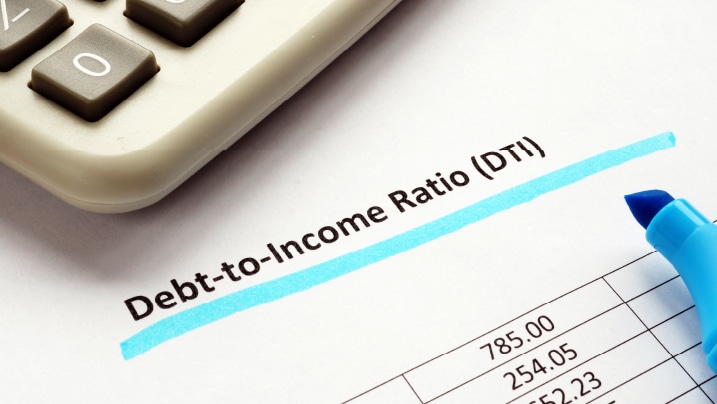CKYC Registry
-
Customer Service Contact us Service request Locate a branch Complaints
Find all the help you need
Scan the QR, get our app, and find help on your fingertips

Help CenterSupport topics, Contact us, FAQs, Complaints and more
-
Login
Are you ready for an upgrade?
Login to the new experience with best features and services
-
Login
Are you ready for an upgrade?
Login to the new experience with best features and services
- Accounts
-
Deposits
IDFC FIRST Bank Deposits
View all Deposits -
Loans
IDFC FIRST Bank Loans
View all Loans - Wealth & Insure
-
Payments
IDFC FIRST Bank Payments
View all Payments -
Cards
IDFC FIRST Bank Cards
View all Cards - Blogs
- Corporate Account
-
Cash Management Services
IDFC FIRST Bank Cash Management Services
View all Cash Management Services - Supply Chain Finance
-
Corporate Lending
IDFC FIRST Bank Lending
View all -
Treasury
IDFC FIRST Bank Treasury
See more details - NBFC Financing
- BRAVO (Auto Sweep)
-
MSME Accounts
IDFC FIRST Bank MSME Accounts
View all Accounts -
Trade Services
- MSME Loan
-
MSME Solutions
- Debit Card
-
Offers
Support topics, Contact us, FAQs, Complaints and more
- IDFC FIRST Bank Accounts
-
Savings Account
-
Corporate Salary
Account -
Senior Citizens
Savings Account -
First Power
Account -
Current Account
-
NRI Savings
Account -
TASC Institutional
Account -
Savings Account
Interest Calculator
- IDFC FIRST Bank Deposits
-
Fixed Deposit
-
Recurring Deposit
-
NRI Fixed Deposit
-
Safe Deposit Locker
-
FD Calculator
-
RD Calculator
- IDFC FIRST Bank Loans
-
Personal Loan
-
Consumer Durable
Loan -
Home Loan
-
Business Loan
-
Professional Loan
-
Education Loan
-
New Car Loan
-
Pre-owned Car Loan
-
Two Wheeler Loan
-
Pre-owned Two
Wheeler Loan -
Commercial Vehicle
Loan -
Gold Loan
-
Loan Against Property
-
Loan Against Securities
-
Easy Buy EMI card
-
Personal Loan
EMI Calculator -
Education Loan
EMI Calculator -
Home Loan
EMI Calculator -
EMI Calculator
-
Personal Loan Eligibility Calculator
- IDFC FIRST Bank Wealth & Insure
-
FIRST Select
-
FIRST Wealth
-
FIRST Private
-
Mutual Funds
-
Sovereign Gold Bond
-
Demat Account
-
Term Insurance
-
Life Insurance
-
Health Insurance
-
General Insurance
-
Bonds
-
Loan Against
Securities -
Portfolio Management
Service
- IDFC FIRST Bank Payments
-
FASTag
-
Credit Card
Bill Payments -
UPI
-
Funds Transfer
-
Forex Services
-
Pay Loan EMI
- IDFC FIRST Bank Cards
-
Ashva :
Metal Credit Card -
Mayura :
Metal Credit Card -
FIRST Millennia
Credit Card -
FIRST Classic
Credit Card -
FIRST Select
Credit Card -
FIRST Wealth
Credit Card -
FIRST WOW!
Credit Card -
Deals
-
Debit Cards
-
Co-branded Cards
-
Credit Card
EMI Calculator -
FIRST Corporate
Credit Card -
FIRST Purchase
Credit Card -
FIRST Business
Credit Card
- Premium Metal Credit Cards
-
AshvaLifestyle1% Forex₹2,999
-
MayuraLifestyleZero Forex₹5,999
-
FIRST PrivateInvite Only
- Best for travellers
-
Diamond Reserve Credit CardZero ForexTravel₹3,000
-
FIRST WOW! BlackZero ForexTravelDual Cards
-
IndiGo IDFC FIRST Dual Credit CardTravelLifestyle₹4,999
-
MayuraZero ForexMetal₹5,999
-
Ashva1% ForexMetal₹2,999
-
FIRST WOW!Zero ForexTravelLifetime Free
-
FIRST SWYPTravel OffersEMI₹499
-
FIRST Select1.99% ForexLifestyleLifetime Free
-
FIRST Wealth1.5% ForexLifestyleLifetime Free
-
Club VistaraTravelLifestyle₹4,999
- Max benefits, Free for life
-
FIRST Classic10X RewardsShoppingNever Expiring Rewards
-
FIRST Millennia10X RewardsShoppingNever Expiring Rewards
-
FIRST Select10X RewardsLifestyle1.99% Forex
-
FIRST Wealth10X RewardsLifestyle1.5% Forex
-
FIRST WOW!RewardsTravelZero Forex
-
LIC ClassicRewardsInsuranceShopping
-
LIC SelectRewardsInsuranceShopping
- Reward Multipliers
-
Diamond Reserve Credit CardLifestyleZero Forex₹3,000
-
AshvaLifestyleMetal₹2,999
-
MayuraLifestyleZero Forex₹5,999
-
FIRST ClassicNever Expiring RewardsShoppingLifetime Free
-
FIRST MillenniaNever Expiring RewardsShoppingLifetime Free
-
FIRST SelectNever Expiring RewardsLifestyleLifetime Free
-
FIRST WealthNever Expiring RewardsLifestyleLifetime Free
- Rewards & Credit on UPI
-
FIRST WOW! BlackUPIVirtualRewards
-
IndiGo IDFC FIRST Dual Credit CardUPITravelDual cards
-
FIRST Power+FuelUPI₹499
-
FIRST PowerFuelUPI₹199
-
FIRST EA₹NVirtual1% Cashback₹499
-
FIRST DigitalVirtualUPI₹199
- Fuel and Savings
-
FIRST PowerRewardsUPI₹199
-
FIRST Power+RewardsUPI₹499
-
LIC ClassicRewardsInsuranceShopping
-
LIC SelectRewardsInsuranceShopping
- Express and Flaunt
-
Diamond Reserve Credit CardTravelZero Forex₹3,000
-
AshvaMetal1% Forex₹2,999
-
MayuraMetalZero Forex₹5,999
-
FIRST SWYPEMIOfferMAX₹499
-
FIRST MillenniaRewardsShoppingLifetime Free
- FD Backed rewarding Credit Cards for all
-
FIRST WOW! BlackZero ForexTravelAssured
-
FIRST EA₹NVirtualCashback₹499
-
FIRST WOW!Zero ForexTravelLifetime Free
-
CreditPro Balance TransferTransfer & SaveReduce InterestPay Smartly
- IDFC FIRST Bank NRI Forex Solutions
-
Send money to India-Wire transfer
-
Send money to India-Digitally
-
Send money abroad
-
Max Returns FD (INR)
- IDFC FIRST Bank MSME Accounts
-
Platinum Current
Account -
Gold
Current Account -
Silver Plus
Current Account -
Merchant Multiplier
Account -
Agri Multiplier
Account -
TASC Institutional
Account -
Dynamic Current
Account -
World business
Account -
First Startup
Current Account -
EEFC Account
-
RERA Account
-
Other Accounts
- IDFC FIRST Bank Business Loans
-
Business Loan
-
Professional Loan
-
Loan Against Property
-
Business Loan for Women
-
Working Capital Loan
-
Construction Equipment Loan
-
Machinery Loan
-
Healthcare Equipment Loan
- IDFC FIRST Bank Business Solutions
-
Payment Solutions
-
Tax Payments
-
Doorstep Banking
-
Point of Sale (POS)
-
Escrow Accounts
-
NACH
-
Payment Gateway
-
UPI
-
Virtual Accounts
-
As per amendment in the Income Tax Rules, PAN or Aadhaar are to be mandatorily quoted for cash deposit or withdrawal aggregating to Rupees twenty lakhs or more in a FY. Please update your PAN or Aadhaar. Kindly reach out to the Bank’s contact center on 1800 10 888 or visit the nearest IDFC FIRST Bank branch for further queries.
-
-
Most Searched
Sorry!
We couldn’t find ‘’ in our website
Here is what you can do :
- Try checking the spelling and search
- Search from below suggestions instead
- Widen your search & try a more generic keyword
Suggested
Get a Credit Card
Enjoy Zero Charges on All Commonly Used Savings Account Services
Open Account Now
Personal Loan
Debt-to-income ratio and personal loans: Some important aspects you must be aware of
Key Takeaways
Lenders use your debt to income ratio to decide how much personal loan you can afford and whether you qualify under wise lending norms
Reducing existing debts and increasing income are practical steps you can take to improve your debt to income ratio quickly
Understand what components count as debt and income so you know exactly how your ratio is calculated
With a better debt to income ratio you can get more favourable loan terms from IDFC FIRST Bank reducing stress on repayment
Whether you want to fund a home renovation project or take a luxury vacation, personal loans have become an easy and convenient way to meet monetary requirements. As a personal loan is usually unsecured in nature, lenders use various parameters to determine loan eligibility. One such crucial parameter is the 'debt-to-income ratio (DTI)'.
The Debt-to-income ratio helps banks and NBFCs understand your creditworthiness. When the DTI is in the ideal range, it indicates good financial health, reducing the risk for lenders.
Let’s check out the different aspects of the debt-to-income ratio and its applications.
What is debt-to-income ratio?
Debt-to-income ratio (DTI) is a financial metric used by banks and NBFCs. The purpose of DTI is to determine an applicant’s ability to manage debt repayments. To calculate DTI, you must divide the total Equated Monthly Instalments (EMIs) by the gross monthly income. The resulting percentage is your debt-to-income ratio.
For example, let's say your total monthly debt is Rs 50,000 and your gross monthly income is Rs 1,00,000.
DTI Ratio = (50,000 / 1,00,000) x 100 = 50%
Also read - Tips to avail of a personal loan despite a low credit score
Importance of debt-to-income-ratio in personal finance
Debt-to-income ratio is a crucial financial metric pertaining to the reasons mentioned below -
- Financial health - Debt-to-income ratio serves as an indicator of the applicant’s ability to manage EMIs.
- Eligibility - Debt-to-income ratio helps lenders determine personal loan eligibility. A higher debt-to-income ratio indicates greater debt burden and strain on finances. Whereas lower DTI lowers the risk of default.
- Financial planning - Debt-to-income ratio helps you make informed decisions related to your finances. You are in a better position to ensure timely EMI payments.
READ MORE
Belated, revised, and updated income tax returns
• A belated ITR is filed if the taxpayer fails to file the income tax return on or before the original due date.
• A revised ITR is filed if the original income tax return status is erroneous, i.e. inaccurate.
• An updated ITR can update any or all previous income tax returns filed. However, this can be filed only once for an assessment year.
Purpose
You can file a belated income tax return if you still need to complete the original ITR filing date. A revised return is filed when you have filed the original ITR on time, but it needs correction. A revised return can also revise a belated return. An updated return can be filed to update any omissions or mistakes in the original, overdue, or revised income tax returns. It can also be filed if none of these returns has been filed.
Timeline
Belated returns can be filed on or before 31st December of the assessment year. The last date for filing a revised return is also 31st December of the assessment year. There is no limit to how many times a belated return can be filed. An updated ITR can be filed after the end of the relevant assessment year but within 24 months of the end of the relevant assessment year.
Also read: https://www.idfcfirst.bank.in/finfirst-blogs/finance/is-tax-refund-amount-taxable
Why you should avoid taking these extensions
While filing a belated return, you cannot carry forward your losses (except loss from house property). A late fee under Section 234F and interest under Sections 234A, 234B, and 234C is levied on belated returns. While filing a revised ITR, you must provide the original return's receipt number and filing date. In an updated return, you cannot file a nil or loss return, or claim or increase the tax refund amount.
Given these drawbacks, you must – as far as possible – file your income tax return on time and correctly.
Also read: https://www.idfcfirst.bank.in/finfirst-blogs/finance/banking-details-needed-for-filing-taxes
Conclusion
To reduce your tax liability, you can make tax-saving investments through your IDFC FIRST Bank Savings Account. For attractive fixed deposits and direct investment through demat, open your IDFC FIRST Bank Savings Account today!
Disclaimer
The contents of this article/infographic/picture/video are meant solely for information purposes. The contents are generic in nature and for informational purposes only. It is not a substitute for specific advice in your own circumstances. The information is subject to updation, completion, revision, verification and amendment and the same may change materially. The information is not intended for distribution or use by any person in any jurisdiction where such distribution or use would be contrary to law or regulation or would subject IDFC FIRST Bank or its affiliates to any licensing or registration requirements. IDFC FIRST Bank shall not be responsible for any direct/indirect loss or liability incurred by the reader for taking any financial decisions based on the contents and information mentioned. Please consult your financial advisor before making any financial decision.
The features, benefits and offers mentioned in the article are applicable as on the day of publication of this blog and is subject to change without notice. The contents herein are also subject to other product specific terms and conditions and any third party terms and conditions, as applicable. Please refer our website www.idfcfirst.bank.in for latest updates.

























